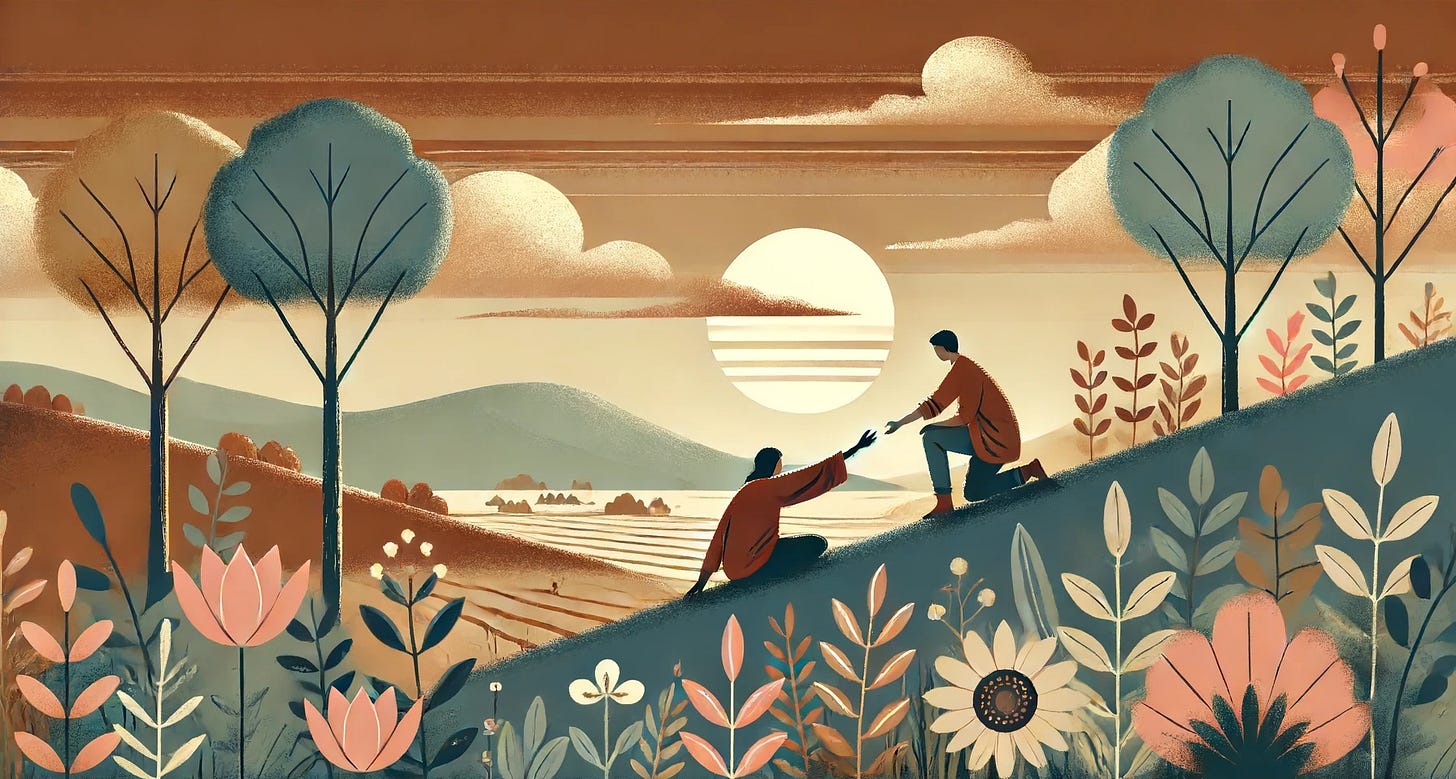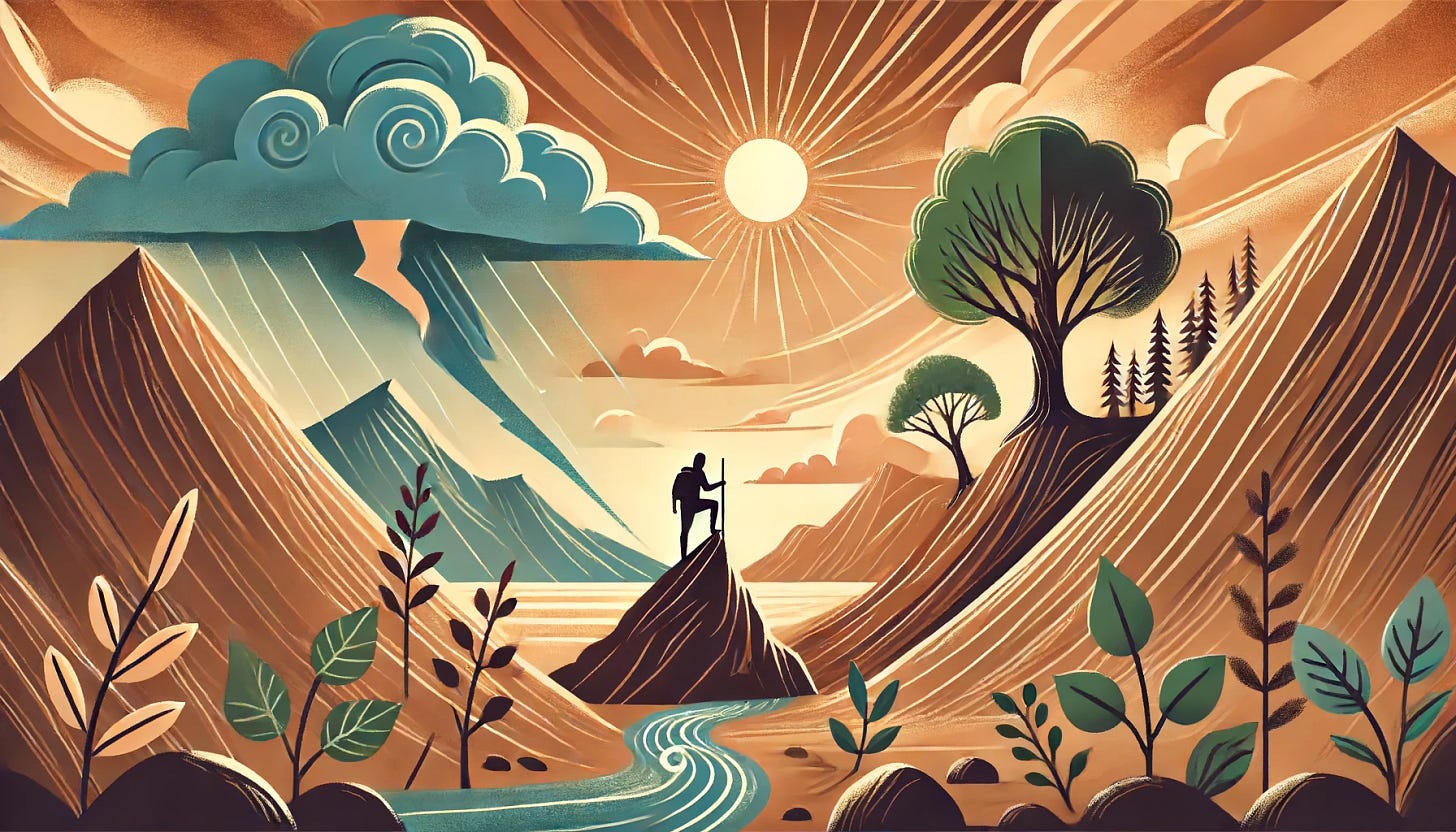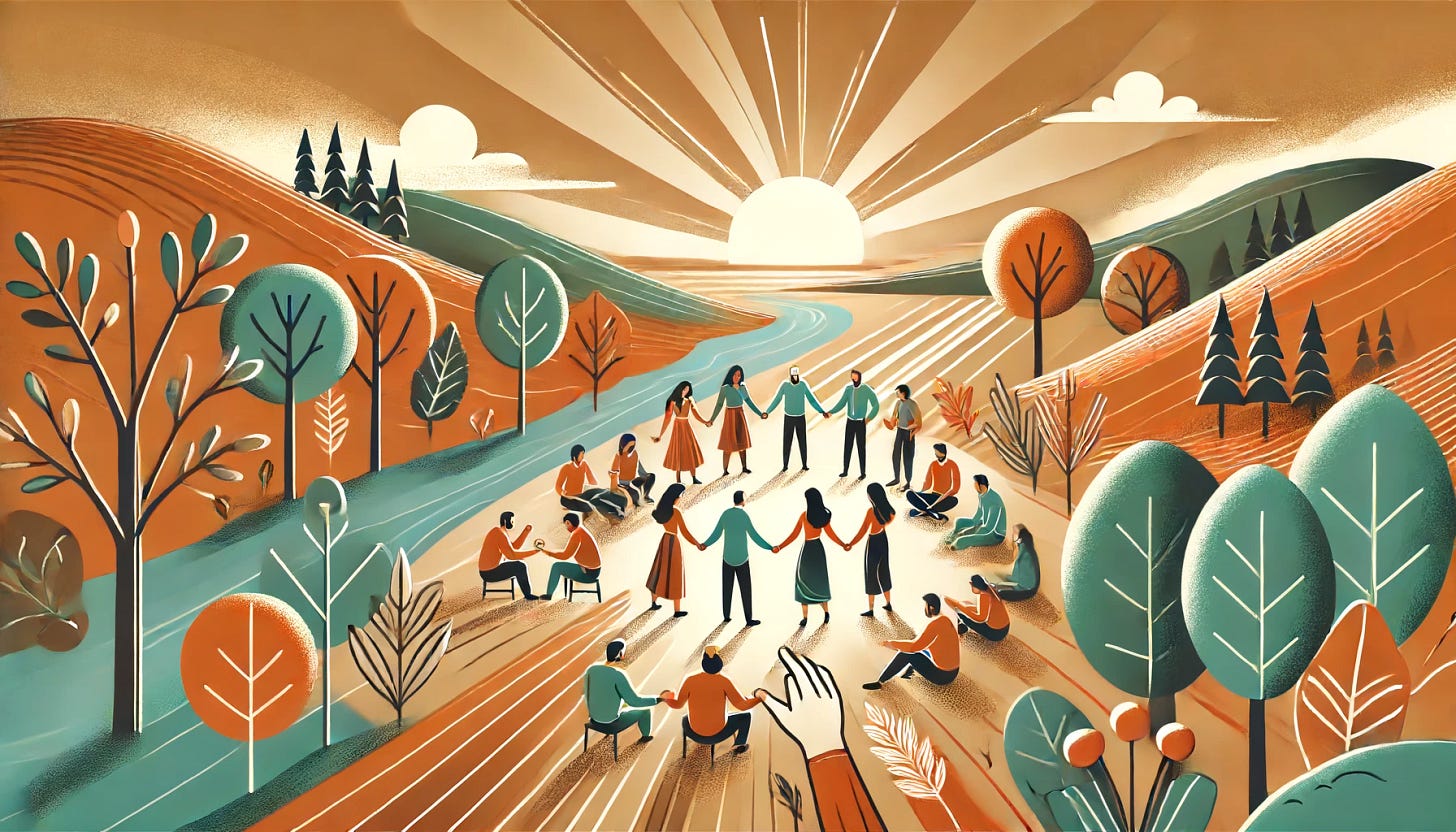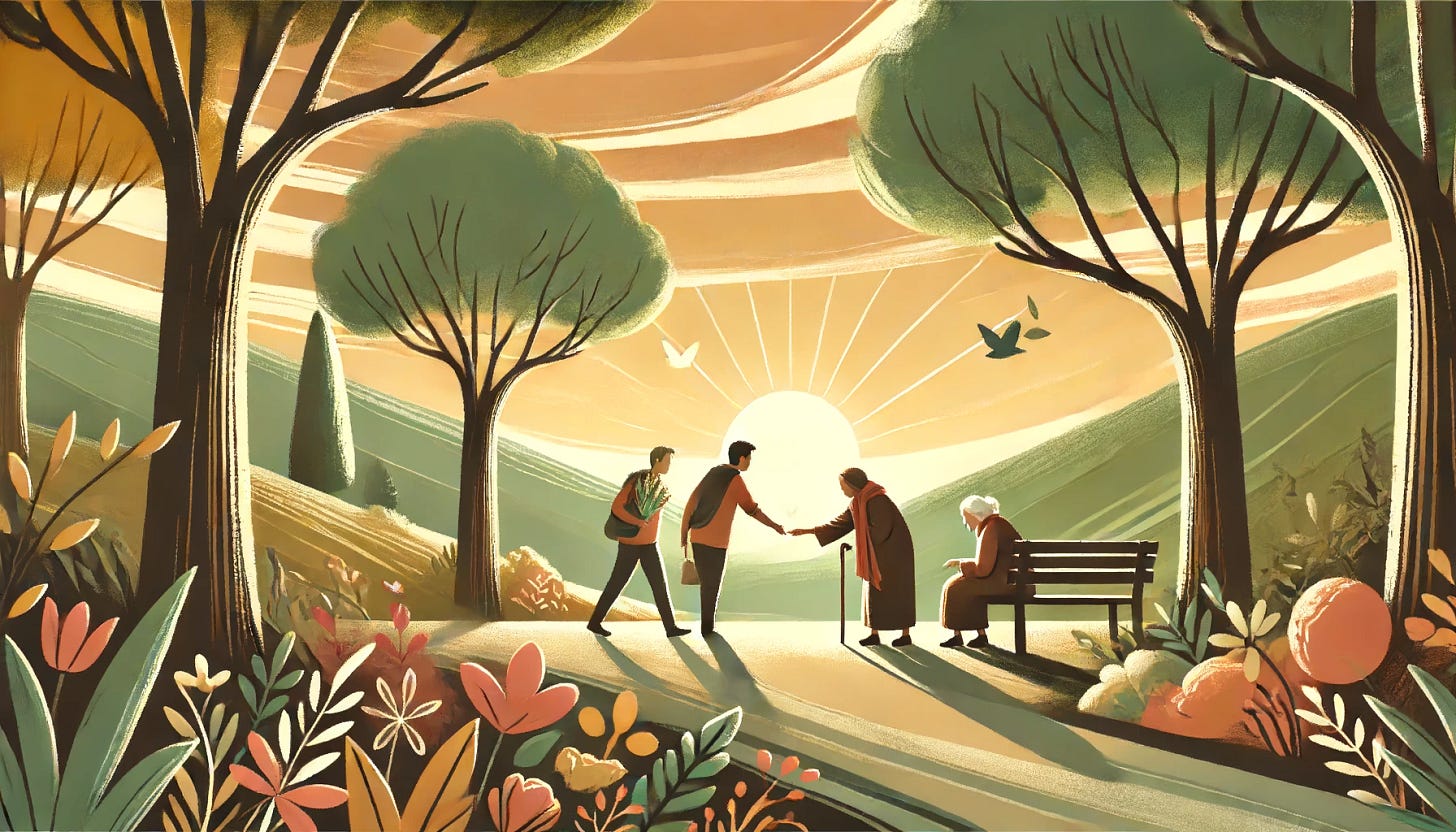The Kindness Paradox
Exploring the evolutionary and psychological barrier to compassion
Kindness is a trait universally celebrated, yet paradoxically undervalued in the practical spheres of modern society. A trait that everyone seems to praise but seldom directly acknowledged or rewarded in everyday life.
Illinois Governor JB Pritzker’s speech caught my attention last year when he addressed Northwestern University class of 2023 with his advice on “the best way to spot an idiot? Look for the person who is cruel”. His entire speech eloquently captures this very paradox, drawing a stark line between cruelty and kindness, highlighting the advanced mental capacities required to choose the latter.
“…. because somewhere along the way in the last few years, our society has come to believe that weaponised cruelty is part of some well-thought-out master plan. Cruelty is seen by some as an adroit cudgel to gain power. Empathy and kindness are considered weak.”
— excerpt from JB Pritzker’s commencement speech
To understand why kindness is often overlooked and cruelty mistaken for strength, we have to look into human evolution, societal structures, and the psychological underpinnings that shape our behaviours (related read: “How Our Feelings Shape Our World” takes a look at why and how our emotions have been misunderstood).
From an evolutionary perspective, humans are hardwired to be suspicious of those who are different. This instinctual wariness stems from our primal needs for survival. Early humans lived in small, close-knit groups where familiarity meant safety. Encountering someone different often posed a potential threat — be it a rival tribe or a predator in disguise. The ingrained fear and judgement were essential for the survival of our ancestors, creating neural pathways that prioritises caution over compassion.
However, as Governor Pritzker aptly notes, empathy and kindness are evolved state of being. These traits require us to override our primal instincts and engage higher cognitive functions. Studies in neuroscience have shown us that the prefrontal cortex, the area of the brain responsible for complex decision-making and empathy, is more developed in humans than in any other species. This development enables us to empathise with others, consider their perspectives, and act with kindness even when our initial instinct might be to fear or judge.
Despite our capacity for empathy, societal structures have often rewarded cruelty, framing it as a necessary tool for success. This phenomenon can be traced back to various historical and cultural narratives that glorify ruthless behaviour. From the conquests of empires to corporate boardrooms, cruelty has been romanticised as a means to achieve power and control. For crime against humanity, People’s Republic of North Korea (DPRK) under Kim Jong Un’s leadership, remains one of the world’s most repressive regimes.
Psychologically, this belief is further reinforced by cognitive biases such as the “just-world hypothesis,” which leads people to rationalise cruelty as deserved or necessary when the misfortune happens to someone else. Add to that, the “power paradox” explains how individuals who attain power through empathy and cooperation often shift towards self-serving and ruthless behaviours to maintain their status. It’s a defence mechanism to protect their position and fend off potential threats, perpetuating a cycle where cruelty is seen as strength and kindness as weak.
“The power paradox is this: we rise in power and make a difference in the world due to what is best about human nature, but we fall from power due to what is worst. We gain a capacity to make a difference in the world by enhancing the lives of others, but the very experience of having power and privilege leads us to behave, in our worst moments, like impulsive, out-of-control sociopaths.”
— Dacher Keltner, author of The Power Paradox
So, contrary to societal perceptions, kindness requires significant emotional strength. Empathy involves vulnerability, a willingness to connect with others’ pain and joy, and the courage to act compassionately despite potential risks. Research within the positive psychology field highlights that kind individuals often possess higher emotional intelligence, resilience, and psychological well-being. They are better equipped to navigate complex social dynamics and solve problem creatively.
Governor Pritzker’s assertion that “the kindest person in the room is often the smartest” adds to the findings that emotionally intelligent leaders foster more collaborative and innovative environments. Studies have shown that organisations led by empathetic leaders have higher employee satisfaction, retention, and productivity. Kindness, therefore, is not a weakness but a strategic advantage that promotes sustainable success.
And to cultivate kindness, we must each take personal responsibility. This involves self-reflection, challenging our own biases, and consciously choosing empathy over judgement. We must advocate for systemic changes that prioritises emotional intelligence and compassion. In doing so, we start creating environments where kindness is not just an admirable trait but a foundational principle that guides our everyday actions and decisions.
It is clear that the path to a kinder society is neither simple nor straightforward. It demands a collective effort to evolve past our primal instincts and embrace our higher capacities for empathy and compassion. As Governor Pritzker reminds us, cruelty is a failure of imagination and creativity, whereas kindness is the hallmark of advanced thinking and problem-solving. By valuing and rewarding kindness, we can build a society that not only survives but thrives, fostering a world where empathy and compassion are the true measures of strength and intelligence.
“Who we are, if not measured by our impact on others? That’s who we are! We’re not who we say we are, we’re not who we want to be, we are the sum of the influence and impact that we have, in our lives, on others.”
— Carl Sagan
My favourite find this week:
The Art of Life — a beautiful and heartwarming documentary about the art of living outside of conventions, in deep integrity with one’s essence. As a rising star in the field of abstract mathematics, Michael discovered that he could see beauty and pattern where others could not.
A Teacher Demonstrating the Power of Words — it’s the toothpaste analogy that does it for me! If only we were more mindful of our words, knowing that once spoken, they can never be retracted.
Updates:
20/02/2025 — removed Steven Pinker’s quote on the decline of violence. While it’s thought-provoking, his overall work has encouraged blind optimism and has been critiqued as tone-deaf to systemic crises, inequalities and historical complexity.









My grandmother used to say ‘It’s nice to be important but it’s more important to be nice’. Wise woman.